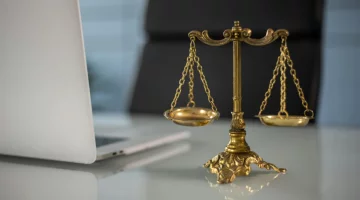Filing Personal Injury Claims for Food Poisoning Cases
In Boston, filing personal injury claims for food poisoning requires proving negligence, such as improper food handling or contamination. Preserve evidence like receipts and leftover food, and seek medical attention immediately. Report the incident to local health authorities. Consulting a Boston attorney ensures compliance with Massachusetts laws and strengthens your case.
Going through a bout of food poisoning can be quite upsetting and may come with health consequences as well. When people find themselves in scenarios resulting from negligence on someone else’s part, it becomes crucial to pursue a personal injury claim. Speaking to a Boston personal injury lawyer at this time can help you understand the steps to take ahead. Knowing the ins and outs of these claims can give those impacted the confidence to pursue compensation.
Exploring the Causes of Foodborne Illness
Consumption of spurious food or drinks can lead to food poisoning. Bacteria or viruses are common culprits responsible for causing symptoms like queasiness and stomach discomfort, along with vomiting in severe instances that may require hospitalization for treatment. Pinpointing the origin of the contamination is vital when considering legal actions.
Setting Responsibility
In cases of food poisoning, pinpointing the party at fault can be tricky. It could be restaurants, factories producing food items, or businesses supplying ingredients, among others. Finding fault typically involves showing that the responsible party did not meet food safety regulations. Proving negligence is crucial in building a case.
Collecting Proof
When starting a claim process, it's important to gather and safeguard evidence effectively. Medical records that detail symptoms and treatment play a role in providing sound evidence. Tracking the source of the food becomes easier with receipts or payment records. Moreover, witness accounts and photos of the food can greatly support a case. Thorough documentation enhances the argument for receiving compensation.
Health Assessment
It is important to see a doctor for both health and legal purposes to ensure proper care and documentation of your illness is provided by a healthcare professional. Having records that explain the diagnosis and treatment can help verify your claim by connecting your health issue to the food you consumed. The seriousness of your symptoms and how long you were sick can also impact the amount of compensation you receive.
Legal Advice
Seek out a lawyer who focuses on personal injury cases for valuable advice and support. They can help you navigate the intricate process of proving fault in such situations and safeguard your legal rights effectively to enhance the chances of a successful claim outcome.
Establishing Harm
Showing the impact of damages includes proving how much physical pain and suffering, as well as financial loss, was experienced because of food poisoning. Things like medical expenses and missed work days are all factors that must be considered when calculating the total damages amount. Collecting evidence and thorough records supporting these details can bolster the argument, leading to a higher potential payout in compensation cases.
Time Limit for Legal Action
Being mindful of the time limits laid out in the law is essential in injury situations, like cases involving food poisoning incidents. These legal deadlines determine when a claim can be made and failing to meet them could mean forfeiting the chance to obtain compensation. Having a grasp of the time restrictions that apply in a particular area helps take prompt measures.
Finding Common Ground in Resolving Disputes
Food poisoning cases often get settled through negotiation of going to court trials most of the time. Negotiating well in these situations means grasping the claim's value and any possible defenses involved. Lawyers are crucial in ensuring that the settlement amount offered is reasonable and adequately compensates for the harm caused.
Legal Hearings
If talks to reach an agreement don't work out enough, court proceedings may be unavoidable at that point. Building a courtroom strategy involves putting together evidence gathered from the viewpoints of witnesses and experts, which serves as the foundation for the legal case presented. A team of professionals who have thoroughly prepared for the case will strongly support the individual seeking compensation to demonstrate negligence and obtain damages.
Ensuring that similar occurrences are avoided in the future
Dealing with food safety concerns goes beyond getting compensation. It also helps prevent issues from arising in the future by creating more awareness about food safety standards and practices. This ultimately benefits society as a whole by advocating for stricter regulations and ensuring compliance to make such incidents less common and promote public health and safety.
In Summary
When you file an injury claim for food poisoning, you must handle the intricacies and show negligence and damages. Knowing the steps helps increase the chances of getting compensation. Getting advice from an expert, collecting evidence, and following legal deadlines enable those impacted to seek justice efficiently. These actions make a just outcome possible, holding people accountable and promoting food-handling practices for all.
More to Read:
Previous Posts:



